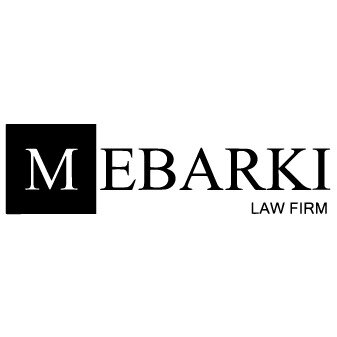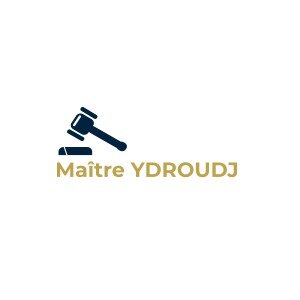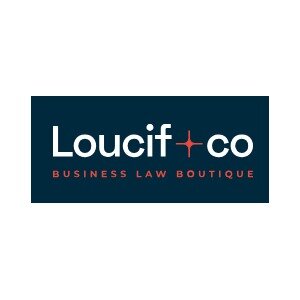Best Tax Increment Financing Lawyers in Algeria
Share your needs with us, get contacted by law firms.
Free. Takes 2 min.
Or refine your search by selecting a city:
List of the best lawyers in Algeria
About Tax Increment Financing Law in Algeria
Tax Increment Financing (TIF) is a public financing method that is used to subsidize redevelopment, infrastructure, and other community-improvement projects in many countries. In Algeria, TIF is a relatively new concept that is gradually being adopted to stimulate economic growth in underdeveloped or distressed areas. The legal framework for TIF in Algeria involves cooperation between local governments and private entities, aiming to boost investment through public-private partnerships. This approach seeks to enhance urban infrastructure and development without imposing a direct tax increase on citizens.
Why You May Need a Lawyer
There are several scenarios in which you might need legal advice regarding Tax Increment Financing in Algeria:
- Understanding Legal Commitments: If you are involved in a development project using TIF and need clarity on your legal obligations and rights.
- Contract Negotiations: When entering into agreements between private entities and government bodies regarding TIF funding.
- Compliance Issues: Ensuring that all activities are compliant with Algerian law and any specific regulations related to TIF.
- Dispute Resolution: Addressing conflicts that may arise regarding the usage and management of TIF funds.
- Project Feasibility: Legal evaluation of potential risks and benefits before undertaking a TIF project.
Local Laws Overview
In Algeria, the laws around Tax Increment Financing are primarily focused on promoting economic development in designated areas. Some of the key aspects include:
- Public-Private Partnerships: Regulatory frameworks allow for collaborative agreements between government and private entities to manage and use TIF funds effectively.
- Designation of TIF Districts: Specific geographic areas, often those in economic distress, are identified as TIF districts for targeted development.
- Revenue Allocation: Policies dictate how the tax increments generated by the improvements in TIF districts are allocated to repay TIF-related bonds and debt.
- Regulatory Compliance: Adherence to both national and local laws regarding environmental impact, zoning, and land use is mandatory.
Frequently Asked Questions
What is Tax Increment Financing?
Tax Increment Financing is a funding method used by governments to encourage development and infrastructure improvement by borrowing against the future increase in property tax revenues.
How does TIF work in Algeria?
In Algeria, TIF involves identifying a distressed area as a TIF district and using future gains in property tax revenues from the district to finance current development projects within that district.
Who oversees TIF projects in Algeria?
TIF projects are overseen by local government authorities, often in coordination with private sector partners involved in the projects.
What are the benefits of TIF?
TIF can lead to revitalized urban areas, increased property values, and improved public infrastructure without requiring upfront tax increases.
Are there risks associated with TIF?
Yes, risks include potential financial shortfall if projected tax increments do not materialize, legal disputes, and failed projects that do not deliver public benefits.
Can any area be designated as a TIF district?
No, TIF districts are generally designated in areas that demonstrate economic distress or underdevelopment, to justify the need for stimulation.
What types of projects are typically financed with TIF?
TIF commonly finances infrastructure improvements, public facilities, and other urban development projects that spur economic revitalization.
How are TIF funds repaid?
TIF funds are repaid through the incremental increase in property taxes that result from the improvements within the TIF district.
What happens if a TIF project fails?
If a TIF project fails to generate the expected increment in tax revenue, there may be a funding shortfall, potentially requiring adjustments in project scope or financing.
How can I get more information on TIF regulations?
Contacting legal experts or governmental bodies specializing in urban development and finance can provide more comprehensive insights into TIF regulations.
Additional Resources
For those seeking more information or assistance with Tax Increment Financing in Algeria, consider the following resources:
- Local Municipal Offices: They often provide information and documentation regarding TIF districts and regulations.
- Ministry of Housing, Urban Planning, and the City: A key governmental body involved in urban planning and TIF policy formulation.
- Legal Document Centers: These centers provide access to statutory instruments and regulations relating to TIF.
Next Steps
If you require legal assistance with Tax Increment Financing in Algeria, consider taking these steps:
- Research: Gather relevant information about your project or area of concern regarding TIF.
- Consultation: Reach out to legal professionals or law firms with expertise in finance and urban development law.
- Documentation: Ensure you have all necessary documents and understanding of local regulations before undertaking any TIF-related activities.
- Follow-Up: Keep in regular contact with legal advisors to ensure compliance and address any emerging issues promptly.
Lawzana helps you find the best lawyers and law firms in Algeria through a curated and pre-screened list of qualified legal professionals. Our platform offers rankings and detailed profiles of attorneys and law firms, allowing you to compare based on practice areas, including Tax Increment Financing, experience, and client feedback.
Each profile includes a description of the firm's areas of practice, client reviews, team members and partners, year of establishment, spoken languages, office locations, contact information, social media presence, and any published articles or resources. Most firms on our platform speak English and are experienced in both local and international legal matters.
Get a quote from top-rated law firms in Algeria — quickly, securely, and without unnecessary hassle.
Disclaimer:
The information provided on this page is for general informational purposes only and does not constitute legal advice. While we strive to ensure the accuracy and relevance of the content, legal information may change over time, and interpretations of the law can vary. You should always consult with a qualified legal professional for advice specific to your situation.
We disclaim all liability for actions taken or not taken based on the content of this page. If you believe any information is incorrect or outdated, please contact us, and we will review and update it where appropriate.
Browse tax increment financing law firms by city in Algeria
Refine your search by selecting a city.












